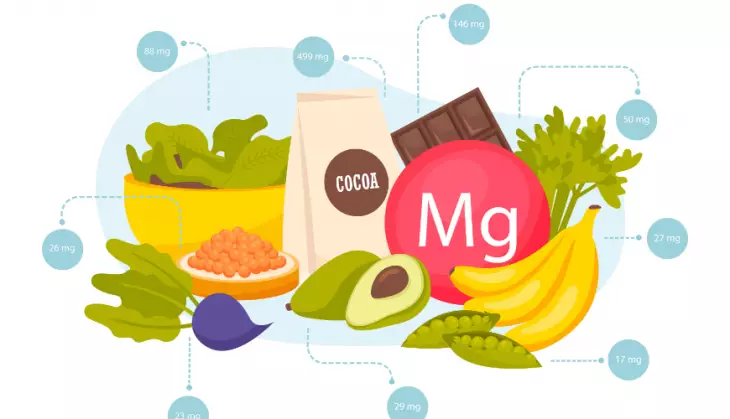Magnesium Glycinate: An In-Depth Guide
Magnesium is a mineral that is fundamental for numerous functions in the human body. From skeletal health to the regulation of blood pressure, magnesium plays a significant role. One form of this mineral, magnesium glycinate, has gained attention due to its increased bioavailability. This article aims to provide a comprehensive guide on magnesium glycinate, discussing its benefits, usage, and related concerns.
Understanding the Role of Magnesium in our Body
Every cell in our body requires magnesium for its optimal functioning. Given that many Americans have been found to consume less magnesium than the recommended amount, it's crucial to emphasize the importance of maintaining adequate magnesium levels. Though the body can manage mild deficiencies by reducing excretion through the kidneys, prolonged insufficient intake can lead to adverse health effects.
For adults, the Recommended Dietary Allowance (RDA) for magnesium fluctuates between 300–420 mg/day, depending on factors like age and gender. Regularly meeting these recommendations can provide several health benefits, from supporting bone health to potentially preventing type 2 diabetes.
Magnesium Glycinate: A Close Look
The supplement market boasts various magnesium types, with magnesium oxide being the most economical. Yet, the body has a harder time absorbing magnesium oxide, making it less efficient than other forms. Enter magnesium glycinate.
Magnesium glycinate is the result of binding elemental magnesium with the amino acid glycine. This configuration makes the magnesium more 'bioavailable,' which implies that it is more readily absorbed by our small intestine when consumed. Thus, for individuals seeking to supplement their magnesium levels, magnesium glycinate becomes a prime choice due to its high absorption rate.
Health Benefits of Magnesium Glycinate
Beyond its higher absorption rate, magnesium glycinate offers a slew of health advantages:
- Mental Health: Magnesium glycinate can potentially alleviate anxiety, serving as a natural remedy for those dealing with mental health challenges.
- Bone Health: It plays a role in fortifying bones, making it essential for preventing bone-related diseases.
- Blood Sugar Regulation: For diabetics, magnesium glycinate can assist in stabilizing blood sugar levels and might also decrease the risk of type 2 diabetes onset in non-diabetic individuals.
- Heart Health: Regular intake can help maintain steady heart rhythms, potentially reducing cardiovascular risks.
- Women's Health: Women might find relief from premenstrual syndrome (PMS) symptoms with magnesium glycinate.
- Physical Performance: Athletes and fitness enthusiasts may experience improved exercise outcomes.
- Pain Management: Magnesium has long been associated with pain relief, and glycinate form is no exception.
Scientific reviews from 2021 and 2016 have further highlighted magnesium supplements' potential in treating fibromyalgia and reducing the risks of stroke, heart failure, and diabetes.
Recognizing Magnesium Deficiency
Nearly half of the U.S. population might be grappling with magnesium deficiency. The RDAs provide clear guidelines, with adult females typically requiring between 310 mg to 320 mg and adult males needing between 400 mg to 420 mg. These values can vary based on age and conditions such as pregnancy or breastfeeding.
Manifestations of magnesium deficiency encompass a range of symptoms, including loss of appetite, fatigue, tingling sensations, muscle cramps, and, in severe cases, seizures or abnormal heart rhythms.
Several factors can contribute to low magnesium levels. These include excessive alcohol consumption, chronic diarrhea, untreated diabetes, malabsorption due to conditions like celiac disease, and certain medications.
Properly Supplementing with Magnesium Glycinate
To counteract magnesium deficiencies, some may turn to supplements. Magnesium glycinate is available in both pill and powder forms, with intake preferably alongside food to minimize gastrointestinal discomfort.
However, there are considerations to be made before diving into supplementation:
- It's paramount to discuss any medication currently being taken with a healthcare provider, ensuring there's no risk of adverse interactions.
- Consistently monitoring your overall magnesium intake is crucial to avoid excessive consumption. Though rare, excessive magnesium levels can result in symptoms ranging from nausea to cardiac arrest in severe instances.
Magnesium in Nature
A natural approach to counteracting magnesium deficiency is to focus on magnesium-rich foods. These include:
- Leafy green vegetables like spinach
- Various nuts and seeds, such as chia and sesame
- Seaweeds
- Beans and lentils
- Whole grains
- Fruits like bananas and dried figs
- Fish, notably halibut
Prioritizing organically-grown foods is advisable as they're often richer in essential nutrients. Unfortunately, many modern farming practices deplete the soil of vital minerals, leading to crops that might be lacking in nutrients, including magnesium.
Considerations and FAQs Regarding Magnesium Supplementation
When contemplating magnesium supplementation, there are precautions to observe:
- Always check for the elemental magnesium content when purchasing supplements.
- Purchase from reputable sources, considering the FDA does not vet supplements for efficacy or safety.
- Consult with healthcare professionals, especially if existing health conditions like heart or kidney issues are present.
Some frequently asked questions include:
- Is daily magnesium glycinate intake safe? For most, yes, but always consult a doctor first.
- Can magnesium glycinate aid sleep? While it's a sought-after sleep aid, research remains inconclusive. Though some studies have shown potential benefits, rigorous clinical trials are still pending.
- When should magnesium glycinate be taken? While many consume it before bedtime to boost sleep quality, consistency is key, meaning it should be taken at the same time daily.
Conclusion
Magnesium, a cornerstone mineral for our health, is crucial for a myriad of bodily functions. Magnesium glycinate, given its high bioavailability, serves as an efficient supplementation route for those seeking to elevate their magnesium levels. Whether sourced from diet or supplements, ensuring adequate magnesium intake remains paramount for optimal health. As always, seek medical advice before embarking on any supplementation journey.




